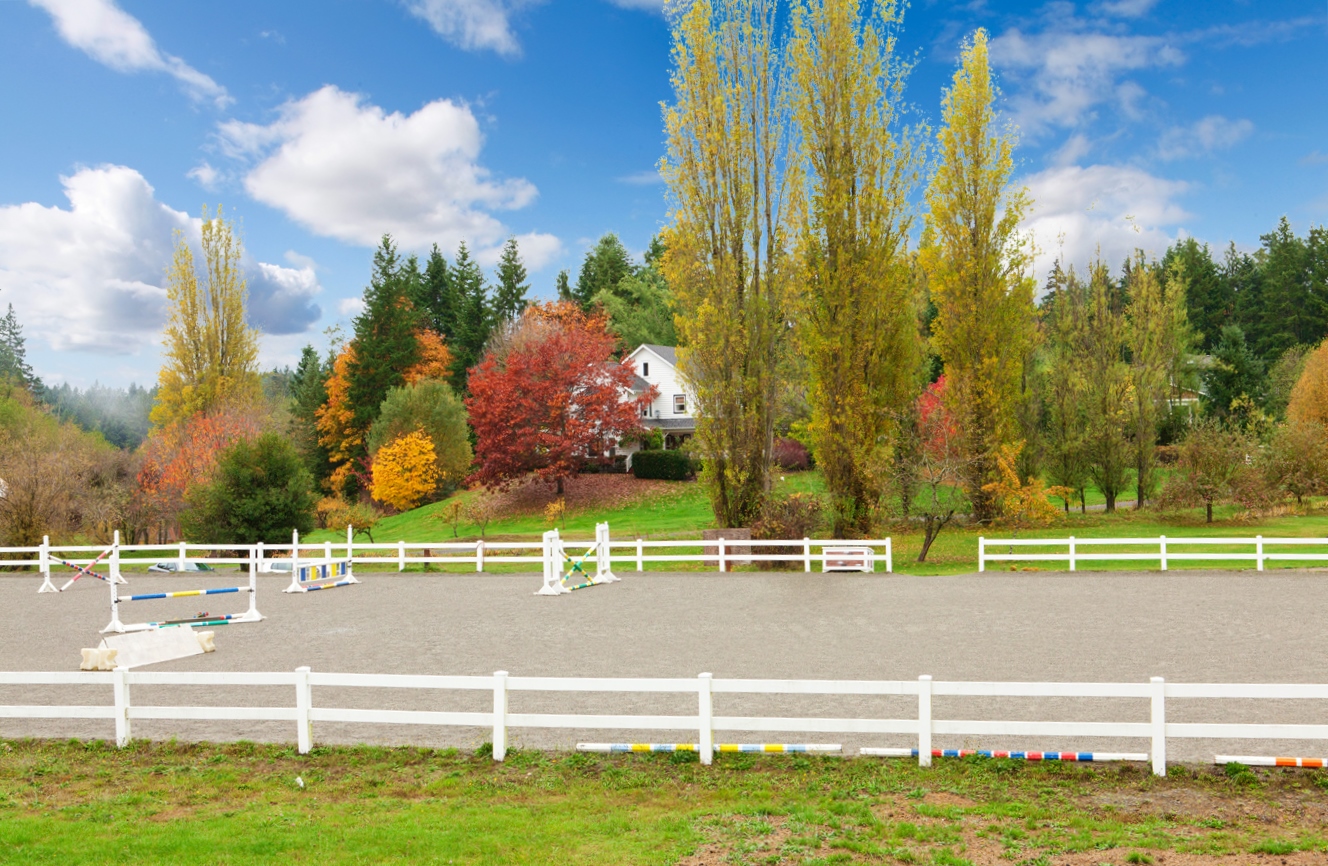Social Links Widget
Click here to edit the Social Media Links settings. This text will not be visible on the front end.
How to get the most money for your horse farm without spending a lot of money
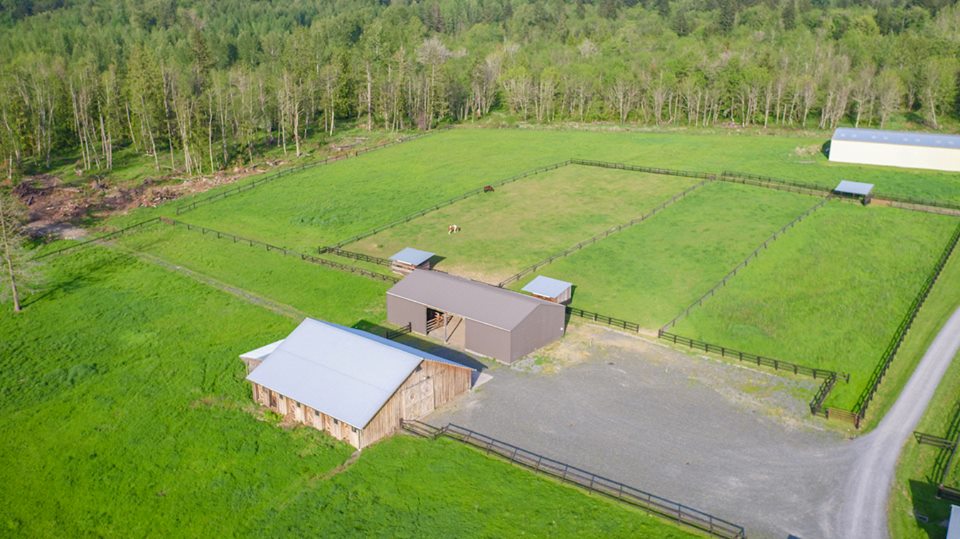
As a Realtor who specializes in listing an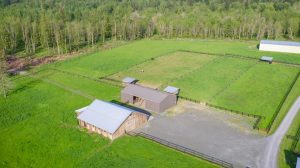 d selling horse properties in Western Washington, I’m often asked by sellers what they should do to get their horse farms ready for sale. So… I thought I’d compile a list of recommendations – things that don’t cost much money but will maximize your sale price. It’s important to understand that a prospective buyer will only be interested in seeing your property if it checks off enough boxes on their “must haves” list. Stall count, arenas, pastures, tack rooms and of course the house itself are all included on that list. Your task as a seller is to improve your property before it goes on the market so that it checks off as many of those boxes as possible. It seems like common sense, but you’d be surprised at how many people are unwilling to put the effort into preparing their property for sale. Don’t be one of those people! If you need guidance, I’d be happy to help. Just give me a call or email me. My contact information is below.
d selling horse properties in Western Washington, I’m often asked by sellers what they should do to get their horse farms ready for sale. So… I thought I’d compile a list of recommendations – things that don’t cost much money but will maximize your sale price. It’s important to understand that a prospective buyer will only be interested in seeing your property if it checks off enough boxes on their “must haves” list. Stall count, arenas, pastures, tack rooms and of course the house itself are all included on that list. Your task as a seller is to improve your property before it goes on the market so that it checks off as many of those boxes as possible. It seems like common sense, but you’d be surprised at how many people are unwilling to put the effort into preparing their property for sale. Don’t be one of those people! If you need guidance, I’d be happy to help. Just give me a call or email me. My contact information is below.
Pressure wash everything: Fencing, painted wood and vinyl look terrible after the winter so pressure wash all of it. Pressure wash mud and dirt off the interior and exterior of your outbuildings, get rid of the dust and cobwebs inside your barn and get moss off the roofs. Touch up paint while you’re at it.

Create an arena if you don’t have one: A lot of people have a riding pad somewhere on their property, but they never go to the trouble of fencing it or bringing in footing. Fence your riding area and drag the ground so we can photograph it as an arena and market it as such in the MLS.
Declutter the grounds, house and barn: Get rid of everything that doesn’t have a permanent home under a roof. This applies to extra vehicles, tractors, tractor implements, wheelbarrows and anything that’s just out in the open and covered with a blue tarp. That moldy 1980’s horse trailer with flat tires and the truck that doesn’t run have to go.
Maximize your stall count: I often see barns that only have two stalls (because the owners only have two horses) but that still have space for additional stalls. Finish those out with walls so we can market your barn as having four stalls instead of a two.
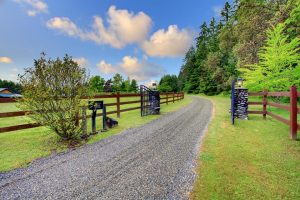 You can’t have too much gravel: If you have a gravel driveway or gravel parking areas around your barn, make sure they don’t have potholes or standing water. I can’t tell you how many times my buyers have been turned off by a property simply because of a rutted, muddy driveway.
You can’t have too much gravel: If you have a gravel driveway or gravel parking areas around your barn, make sure they don’t have potholes or standing water. I can’t tell you how many times my buyers have been turned off by a property simply because of a rutted, muddy driveway.
Fix broken fencing: Whether you have board or vinyl fencing, make sure it’s in good shape. Get rid of chewed or broken boards and rotted posts. Make sure all of the gates are operating properly. If you have wire fencing in your pastures, make sure it’s tightened all the way around. If you have wire fenced paddocks next to the barn for direct turn out, I recommend replacing th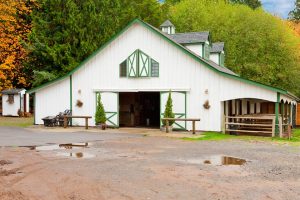 e wire with wood or vinyl.
e wire with wood or vinyl.
Get rid of standing water: Mud is your enemy. If you have standing water in paddocks, arenas or other areas, trench it, install drainage tubes and get the water away from the structures and riding areas. Make sure all your gutters are in place and working properly to keep water away from the house and outbuildings. Put down gravel in paddocks if they are muddy.
Mow everything: Mow your pastures and yard areas prior to photography and keep them mowed regularly while the property is on the market.
Jeff Williams has been riding and showing American Quarter Horses since childhood and is a top producing Realtor with Windermere in Tacoma, Washington. If you have questions about this information, please contact Jeff at (253) 303-1135 or email him at JeffWilliams@Windermere.com.
4th Quarter 2017 Equestrian Property Sales Data by County
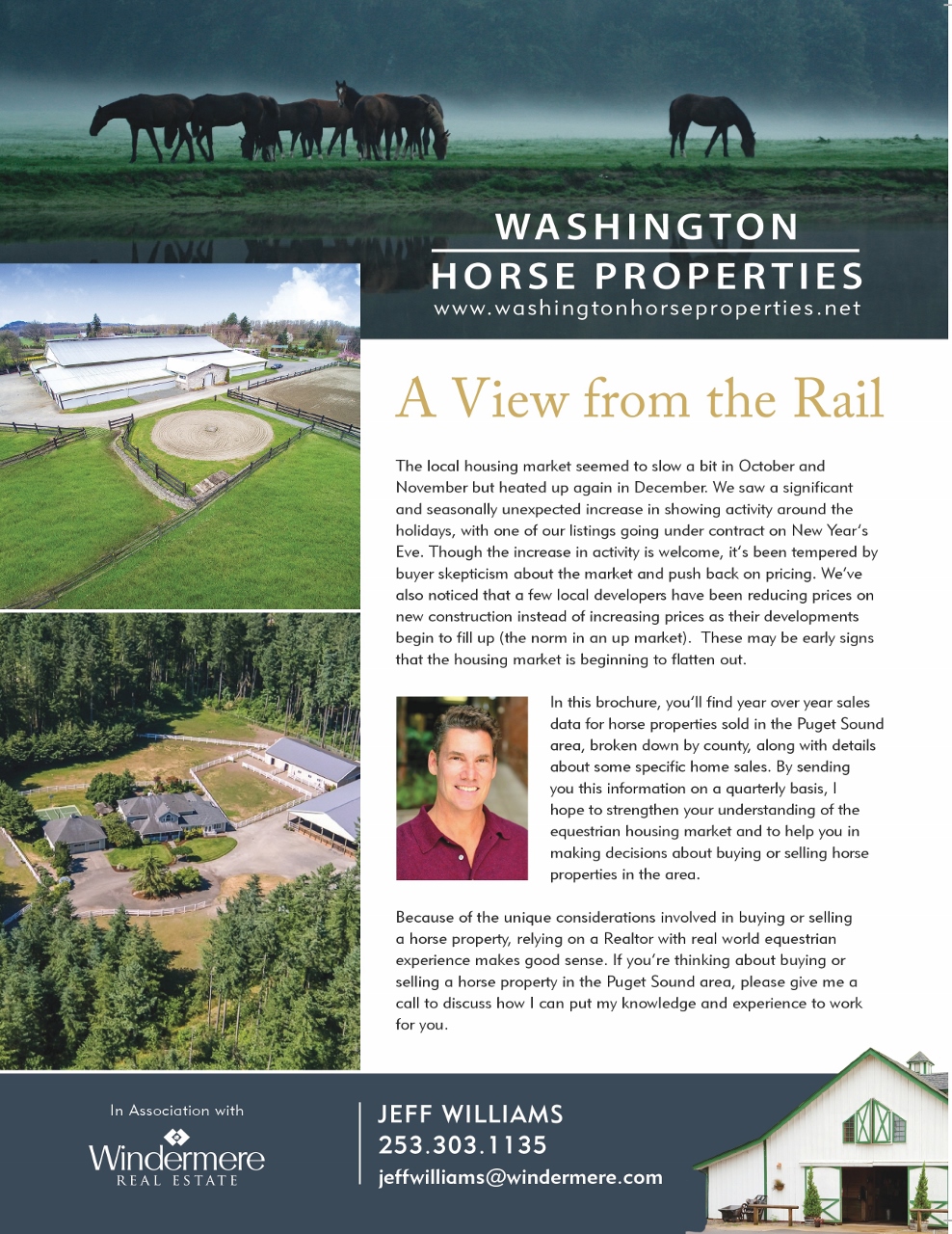
Planning and Designing the Perfect Horse Facility
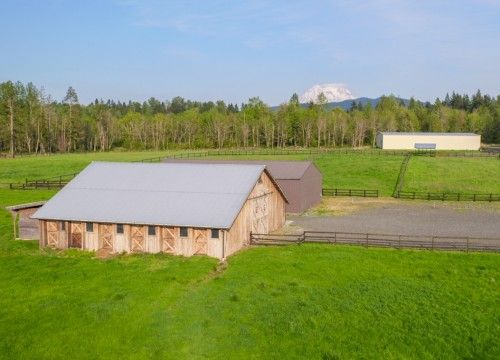 This time of year it seems I constantly have requests from my equestrian clients regarding how to plan, build and or add-on to their current horse farm or property. Obviously, if you are starting from scratch this can be a huge undertaking. Sometimes the house is there but people want to add a barn and fencing, sometimes they want to get rid of poorly conceived outbuildings and customize with their own set-up. Whatever you decide to do with your property, it is critical to keep the "big picture" in mind. How well your property is laid out will definitely affects it's value in the future. Attached below is a link to a well done article created by managing editor Michelle Anderson on TheHorse.com describing the main considerations you should make when building or updating your horse property.
This time of year it seems I constantly have requests from my equestrian clients regarding how to plan, build and or add-on to their current horse farm or property. Obviously, if you are starting from scratch this can be a huge undertaking. Sometimes the house is there but people want to add a barn and fencing, sometimes they want to get rid of poorly conceived outbuildings and customize with their own set-up. Whatever you decide to do with your property, it is critical to keep the "big picture" in mind. How well your property is laid out will definitely affects it's value in the future. Attached below is a link to a well done article created by managing editor Michelle Anderson on TheHorse.com describing the main considerations you should make when building or updating your horse property.
Anderson notes:
Unless your project is nontechnical, you’re using pre-existing, prefabricated, or stock (noncustom) barn plans, or you’re embarking on designing your own property and buildings, you’ll need an architect or design professional’s assistance and guidance.
Architects, specifically, have expertise in all phases of design, including feasibility studies, site design, barn and building design, permitting, budgeting, and ensuring everything is constructed correctly and per plans (more on each one of those steps in a moment). They also can coordinate any required engineering. (Have you ever wondered how those giant indoor rodeo arenas stay upright in a windstorm or earthquake? You can thank architects and engineers for that.)
Jeff Williams has been riding and showing American Quarter Horses since childhood and is a top producing Realtor with Windermere in Tacoma, Washington. If you have questions about this information please contact Jeff at 253-303-1135 or email him at JeffWilliams@Windermere.com.
Why Winter is the Best Time to Buy Horse Property
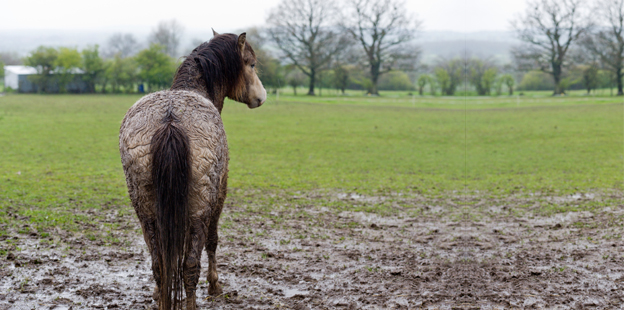 In my opinion winter is the best time to buy horse property in Western Washington. Believe me, I hate trudging through mud and wet pastures during the cold winter as much as the next guy, but there are so many reasons that it makes the most sense to buy this time of year that ultimately the discomfort is worth it. Following are the reasons why, so gear up and get out there!
In my opinion winter is the best time to buy horse property in Western Washington. Believe me, I hate trudging through mud and wet pastures during the cold winter as much as the next guy, but there are so many reasons that it makes the most sense to buy this time of year that ultimately the discomfort is worth it. Following are the reasons why, so gear up and get out there!
Sellers are more negotiable. In all my years of selling real estate I find that most people that have property on the market during the holidays and winter months have to sell. No one wants to be inconvenienced with showing their property and keeping it clean during the holidays, and historically prices are seasonally the lowest from November through February. Plus, property that has lingered on the market through the summer and fall is probably priced too high. By the end of the year with the holidays bearing down, sellers are usually frustrated and more likely to sell at a much lower price than they might have in the spring and summer. Winter is bargain hunting time!
Is the drainage around barns, arenas, and pastures sufficient? Winter rain brings the perfect opportunity to discover just how good the drainage is surrounding barns, arenas, and pastures. Horses standing knee deep in mud in their runs equals little to no drainage. It's bad for horses and bad for you as a buyer.
Consider the roads leading to the property. I've seen lots of properties on poorly maintained dirt or gravel roads that are lined by trees. Wind and rain are constant issues in Washington State so be sure that you can get a truck and trailer in and out during a storm and that emergency vehicles can get to you. Otherwise, tree fall could leave you trapped at your property for days. Also, if your vehicle is up to the axles in mud and landing in huge potholes on the way to the property, my advice would be to walk away.
Is the hay storage sufficient? The last thing you want to coordinate is a monthly shipment of hay. In Washington State, having a dry storage spot for hay is critical. Fog and moisture in the air can easily mold perfectly dry hay. Having a heated tack room is also important to help prevent molding of leather tack. Winter is the perfect time to inspect the hay on the property and search tack rooms and barns for mold.
Is the property impacted by wetlands? Most counties in Washington State prohibit grazing animals on, building on or clearing of wetlands. The presence of wetlands can also be an indicator of potential flooding. If you're searching for a home during the summer months, wetlands may not be readily apparent, but during the torrential rains we’ve been having lately wetlands are impossible to miss.
Are roofs leaking? This is so obvious, but barns, arenas and sheds many times have leaky roofs. Homeowners usually make sure the roof on their house is good, but barns and outbuildings… not so much. When it’s raining you’ll know right away if there is a problem before you get to the point of an official inspection.
Jeff Williams has been riding and showing American Quarter Horses since childhood and is a top producing Realtor with Windermere in Tacoma, Washington. If you have questions about this information please contact Jeff at 253-303-1135 or email him at JeffWilliams@Windermere.com.
Considerations When Buying or Selling Horse Property
1. Is the property impacted by wetlands? Most counties in Washington State prohibit grazing animals on, building on or clearing of wetlands. The presence of wetlands can also be an indicator of potential flooding. If you're searching for a home during the summer months, wetlands may not be readily apparent.
2. If the property is served by a well, does the well produce enough water to accomodate the needs of a horse facility? Making sure there is an adequate year round supply of water is critical. It's also important to verify that the water is not contaminated.
3. Is the property zoned within its jurisdiction for the quantity of animals you intend to maintain? If you plan to board horses for other people or run a tack shop from your farm, are those commercial activities allowed by the county?
4. Is the land you intend to use for outbuildings and pasture cleared? In Washington State, there are regulations regarding tree removal that can differ from county to county.
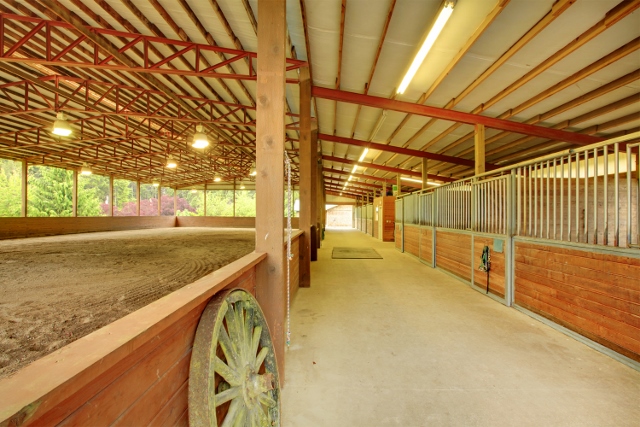
5. How does the house interact with the barn and arenas? In my experience, potential buyers don't like it if the barn is sited too close to the house or too far away.
6. Think about equipment storage. The last thing you want to have to do is leave your tractors, trailers and tools outside in the elements, especially in Washington State. Make sure the property can accomodate equipment inside or at least in a covered shed.
7. Is the fencing sound? Wood fencing is beautiful and we all love it for safety and appearance, but replacement and maintenance costs can be crazy expensive.
8. Is the hay storage sufficient? The last thing you want to coordinate is a monthly shipment of hay. In Washington State, having a dry storage spot for hay is critical. Fog and moisture in the air can easily mold perfectly dry hay. Having a heated tack room is also important to help prevent molding of leather tack.
9. Check on manure disposal regulations before you buy. Many counties regulate manure disposal and storage, and this can be an added expense for the property owner. I've seen some properties that require disposal in dumpsters. You can imagine the costs associated with that.
10. If additional residences for farm workers are located on the property, is the property zoned for multiple residences and can the septic systems legally accomodate those dwellings? I've seen a number of properties where illegal septic systems have been installed to accomodate a mobile home for barn help because the zoning doesn't allow multiple residential dwellings on site.
11. Look for rot everywhere! Poorly maintained structures that have improper wood to earth contact are frequently rotted. Don't buy a pole barn that is sitting on rotted posts.
12. Consider the roads leading to the property. I've seen lots of properties on poorly maintained dirt or gravel roads that are lined by trees. Wind and rain are constant issues in Washington State so be sure that you can get a truck and trailer in and out during a storm and that emergency vehicles can get to you. Otherwise, tree fall could leave you trapped at your property for days.
13. Is the property wired for a generator? If you're dependent on electricity at the property, be sure you have a propane fueled back-up generator. Losing your electric well pump and heat for the house after a major storm could become dangerous for you and your horses in fairly short order.
14. Are the barns and outbuildings legally built? By their nature, horse properties require barns, sheds, pump houses, etc. I've often seen structures that have been built without permit and that are considered illegal by county officials as a result. With these types of violations, you could be forced to remove the structures. Make sure all outbuildings, especially covered arenas, were built with permits.
15. Not so fast on adding that indoor arena! Very few counties in western Washington allow large free-span covered arenas to be built in an area that's typically zoned residential. Check the codes before you buy a property with the intent to expand.
16. Does the property qualify for or is it currently tax assessed as an agricultural business? If the property is eligible for Ag status or if that is its current property tax designation, it can mean a significant property tax savings for the owner, but there are strings attached. Be sure you understand what qualifies the farm for its agricultural designation. If you're selling an Ag designated property and the new buyer doesn't continue that use, you may be responsible for property tax penalties when you sell.
17. Lastly, is your Realtor a horse person? Horse properties require specialized expertise so working with a Realtor who doesn't understand the language and needs of equestrians will put you at a very real disadvantage. There are a number of marketing tools that I use to get my equestrian listings sold quickly. A Realtor who's not familiar with equestrian properties won't be able to offer you the same tools.
Jeff Williams has been riding and showing American Quarter Horses since childhood and is a top producing Realtor with Windermere in Tacoma, Washington. To learn more about Jeff's equestrian background visit his website Jeff Williams Quarter Horses.
 Facebook
Facebook
 Twitter
Twitter
 Pinterest
Pinterest
 Copy Link
Copy Link





